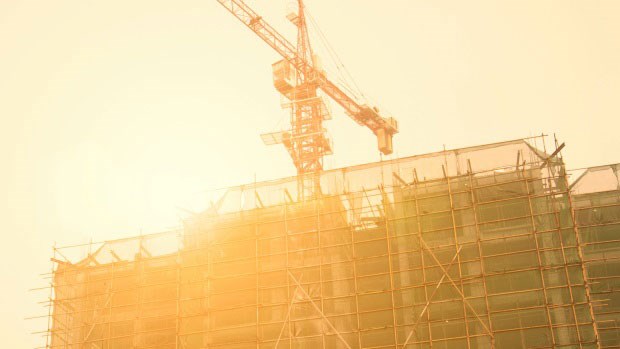Ever wondered how much of the cost of a new home is made up of government fees and taxes? According to a new analysis by appraisal and tax expert Paul Sullivan, if you're talking about a new Â鶹´«Ã½Ó³»apartment, it's more than 26 per cent.
Sullivan modelled the costs for a typical new one-bed-and-den, $840,000 condo on the Cambie Corridor. The scenario used was a land assembly and new development that takes three years to get approved and two years to build. Over the course of the unit's construction, from the moment the land is purchased to the unit's occupancy, $220,256 would be paid in real estate taxes and fees to all three levels of government, which Sullivan said would get passed on to the buyer.
These payments include: City of Â鶹´«Ã½Ó³»fees and taxes, which include community amenity contributions, development cost levies, permit fees, vacant home tax (payable by the developer until the unit is occupied), and property taxes paid by the developer; Metro Vancouverâs regional water and sewer charges; TransLinkâs new regional development cost charge for transit; new provincial taxes including the speculation tax, which may have to be paid on land by the developer (pending legislation); and provincial Property Transfer Tax plus federal GST on the sale (paid by the buyer). Payroll taxes on labour and taxes on materials were not included.
Sullivan said that the 26.22 per cent figure is the same for larger and smaller homes, from a studio to a three-bedroom apartment.
Sullivan, who is a senior partner at Burgess, Cawley, Sullivan and Associates Ltd., one of the largest commercial real estate appraisal and property tax consulting groups in Canada, was commissioned to carry out the analysis and present it at the Greater Â鶹´«Ã½Ó³»Board of Tradeâs (GVBOT) Housing Forum 2018, which took place May 25.
âGovernments at all levels are increasingly addicted to real estate fees and taxes,â said Sullivan at the event. âAt a time when all governments are purportedly concerned about housing affordability, all of these increased taxes and fees are just making housing even more expensive. When expressing their deep concerns over housing affordability, why havenât governments taken a long hard look in the mirror?â
Sullivan also observed at the forum that along the Broadway corridor, where the new SkyTrain extension will be built, the City of Â鶹´«Ã½Ó³»has a new Development Contribution Expectation (DCE) of between $330 and $425 per square foot above existing zoning.
The City made the announcement on the same day as the Board of Tradeâs housing forum. The City stated that it is âintended to limit land value speculation by ensuring that owners, realtors and developers are made aware of the Cityâs intention to preserve and grow affordable and rental housing and job space along the Broadway corridor, and provide needed community amenities to service growth.â
City manager Sadhu Johnston said, âThe future Skytrain development along Broadway is a key opportunity to continue creating more job space and affordable housing. By leveraging this critical transportation investment we can ensure that the needs of our employers and residents are being met as our city continues to grow.â
The Cityâs planning director Gil Kelley added, âStabilizing land values along the Broadway corridor to prioritize the retention of existing affordable rental housing is one of the priority actions in the Housing Â鶹´«Ã½Ó³»strategy.â
Sullivan argued at the GVBOT forum that the DCE was just another added cost that would be passed to buyers. âYou can change the acronym (PTT, DCC, CAC, etc.) or the label, but the fees continue to rise, increasing the cost for buyers. One of the biggest factors behind our housing affordability problem is government piling on more taxes and fees.â
Anne McMullin, president and CEO of developer lobby group the Urban Development Institute, said in a May 29 media release on Sullivanâs findings, âIf governments really want to get serious about delivering more affordable housing options, they need to reduce their heavy reliance on taxing real estate and consider providing tax relief on land used to build housing, including purpose-built rentals.â
The UDI compared Sullivanâs findings to a , which reported that factors such as zoning and land-use restrictions, planning delays, development cost charges and more are adding around $644,000 to the cost of a typical detached house in Metro Vancouver. This is by far the highest in Canada, according to the report.



